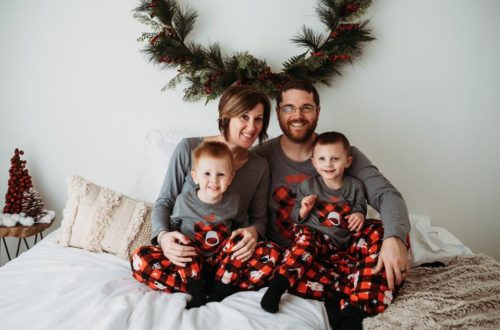Words of Wisdom from Parents
“The words of advice I offer newly diagnosed families today starts out a little different than it did a few years ago. In the past I might have suggested parents not jump into researching the syndrome and to ignore the majority of what has been written by “experts”. Today there is a multitude of valuable information available and it is written by the true experts, the parents of the Angelman Syndrome Community. Do your research. Read all you can. Join the online support groups and ask questions. Find local families and meet their families. You are going to see a wide variety of personalities, abilities, opinions and you are going to feel right at home. Here are a few tried and true words of advice that I still share because they have stood the test of time. 1. Never underestimate your child and do not base your expectations on the evaluations of others. 2. Your child is your child and unless you are neglecting or endangering your child that does not change because of a diagnosis. There are many people out there who think they know best but a parent’s instinct and the intimate knowledge they have of their child serves as the best indicator of what is right and of what needs to be done. 3. No matter what the numbers say your child is still one of a kind and always will be. A diagnosis is a way of helping you help your child but it does not define your child or your family. Your child has a syndrome. The syndrome does not have your child.
4. Be a family first. Try not to let a diagnosis consume you. 24/7 therapy is not healthy for anyone. Love and play are the best gifts you can give your child and are the best stimulants for growth and development.
5. Take care of yourself. Take care of your spouse and take care of your other children. It is easy to focus on your child with a diagnosis and not realize you have let other things go. We have all tried to be the strong one and prove we can do this but I assure you the earlier you learn to allow others to help out the easier it will be.
6. There will be good days and bad days. Your emotions will betray you when you least expect it. You will experience the highest and lowest of emotions and sometimes on the same day. You will sweat the small stuff and you will celebrate the small stuff. You have joined a community that will be here for all of this and we will understand”.
Brenda Dixon, Mississippi
Jonathan – 33yrs AS Del+
“Never accept a doctor telling you that your child ‘won’t be able to’… Never under estimate you child’s potential–our kids love to learn. Always have faith in your ‘gut’ instincts…Momma (or Daddy) usually knows best. Look forward with faith in the advances and treatments that are on the horizon, but, as you struggle (from time to time) in your daily life with an Angel (and there will be struggles), know that you are not alone–we are all in this together. Don’t be afraid to ask questions. Support, tears, cheers and hugs are just a phone call or Facebook post away. Take time each day to recognize the blessings in your life. Enjoy your Angel hugs!!”
Carol Pulver, Florida
Shea Pulver – 22yrs AS Del+
“Don’t allow anyone, even yourself, to see a diagnosis instead of a child. A child needs a parent more than a therapist or researcher. Yes, we need to wear several hats to be good parents – but from your child’s point of view, he really needs Mommy and Daddy more than Dr/Therapist/researcher/advocate – he only has ONE parent or set of parents. Sometimes we get so caught up in “helping” them that we forget the main point, which is to be there physically and emotionally for them. From the start, concentrate on communication and functional skills. These things cannot wait until they’re older. Typical children start learning those things immediately, and nobody says
“oh, wait, I don’t know how to communicate with you yet – I need to take a class” or “oh wait, you’ll have to learn to potty train or pull your pants up and down when you’re 15 (and 6 feet tall)”… it’s more natural to just hand-over-hand those motions from a very early age, and present communication pictures (or even the objects themselves to choose from) as a matter of course as you go about your day. (This is Dora, this is a book – which one would you like?)
If it takes years to develop the actual skills, it’s better to start at age 2 and have that skill when they’re 12, then to start at age 12 to teach skills…when they’ve already got ingrained habits and learned helplessness from having everything done for them. Believe my aching back when I say teaching a child to crawl into his carseat early on will save a lot of wear and tear on your body. Kids with special needs get just as much joy and confidence from ‘doing for themselves’ as anyone. You never know until you try. Read “Disability is Natural” by Kathie Snow. This is common sense advice for parents of special needs kids that they really need to hear.”
Lulu Carpenter, California
Simon – 23 yrs AS


